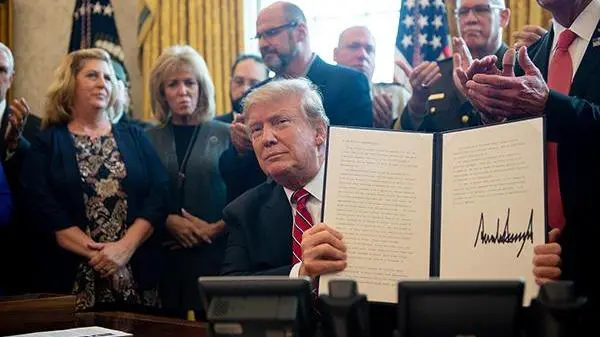Finance ministers and central bank governors from the Group of 20 (G20) major economies on Friday pledged further actions to shore up growth while watching for monetary easing effects, and urged ratification of the IMF governance reform.
Boost growth
On the sidelines of the International Monetary Fund (IMF) and the World Bank Spring Meetings, which officially kicked off Friday, the G20 officials wrapped up their discussions with a joint communique calling for further actions to bring "strong, sustainable, and balanced" world economic growth.
"The global economy has avoided some major tail risks and financial market conditions continue to improve," said the communique. "However, global growth has continued to be too weak and unemployment remains too high in many countries."
The policymakers repeated a commitment the group made after a February meeting in Moscow that they would refrain from competitive devaluation and would not target exchange rates of their currencies to gain trade advantages.
Worries have been heightened by moves the Japanese central bank announced this month the pursuit of aggressive easy-money stance, which have led to a sharp devaluation of the yen. A weaker yen could make Japanese goods cheaper in foreign markets.
Playing down public concerns over a global "currency war," the G20 officials said that recent monetary easing measures from the Bank of Japan were intended to stop deflation and boost domestic demand.
Meanwhile, they reiterated that "excess volatility of financial flows and disorderly movements in exchange rates have adverse implications for economic and financial stability," vowing to be "mindful of unintended negative side effects stemming from extended periods of monetary easing."
Bring budget under control
"Maintaining fiscal sustainability in advanced economies remains essential," said the communique.
Without setting a fixed debt-reduction target, the policymakers of the world's leading economies urged the advanced countries to develop medium-term fiscal strategies before the St. Petersburg G20 Summit in September.
"Further progress toward a balanced medium-term fiscal consolidation plan is necessary for the United States, although significant deficit reduction has already been achieved. Japan should define a credible medium-term fiscal plan," said the communique.
Russian Finance Minister Anton Siluanov said at a news conference that officials from the G20 advanced and emerging economies believed guidelines may be more important than debt-to-GDP figures.
They agreed that these would be soft parameters, some kind of strategic goals that might be amended or adjusted depending on the specific situations in the national economies, he added.
In a World Economic Outlook report released before the Spring Meetings, the IMF noted the right macroeconomic approach would continue to be gradual but sustained fiscal adjustment.
Propel governance reform
The communique also stressed the urgent need for ratification of the 2010 IMF Quota and Governance Reform, a package which included a shift in quotas to dynamic emerging markets and under-represented countries, and a proposed amendment to reform the executive board.
The legislatures of some key IMF members, including the United States, have not yet given the green light to the reform package.
Speaking on Thursday at a press conference prior to the Spring Meetings, IMF Managing Director Christine Lagarde welcomed the progress made toward implementing the reforms and urged remaining member countries to complete the necessary steps rapidly.
The G20 members also agreed to finalize a new quota formula and complete the 15th General Quota Review by January 2014.
"We reaffirm our previous commitment that the distribution of quotas based on the formula should better reflect the relative weights of IMF members in the world economy, which have changed substantially in view of strong GDP growth in dynamic emerging market and developing countries," said the document.
 简体中文
简体中文

